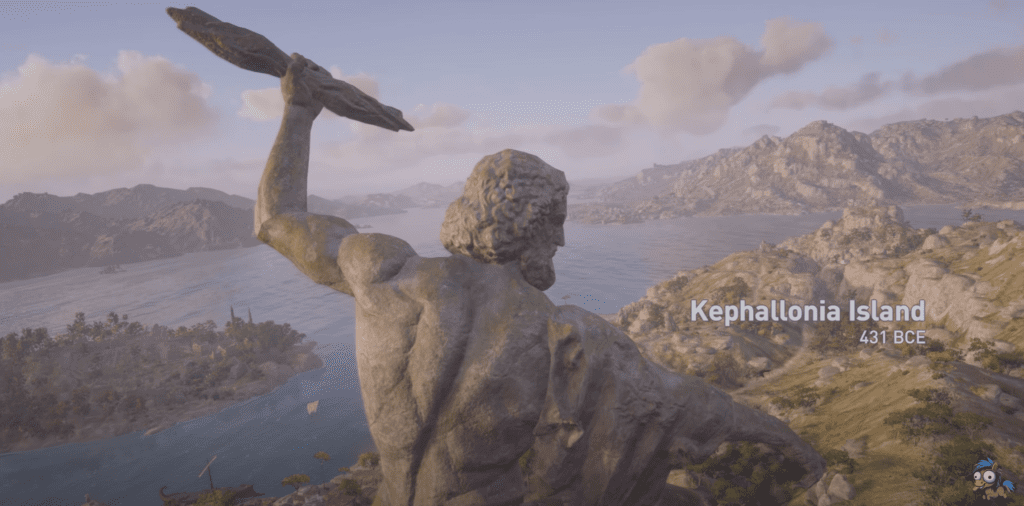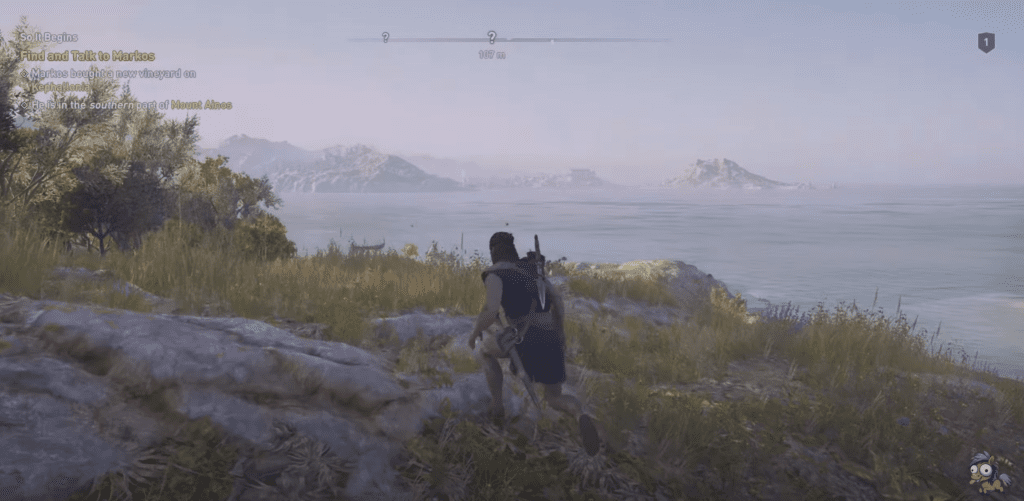Assassin’s Creed Odyssey is one of the most ambitious entries in the Assassin’s Creed franchise, taking the series fully into RPG territory with a massive open-world set in Ancient Greece. Developed by Ubisoft, it builds upon the foundation set by Assassin’s Creed Origins, but expands on it in nearly every way, offering an even larger map, deeper RPG mechanics, and a level of player choice that makes the experience feel personal.
The game takes place in 431 BCE, during the Peloponnesian War, with players choosing to step into the role of either Alexios or Kassandra, two Spartan warriors with a mysterious lineage. Right from the start, Odyssey sets itself apart from previous Assassin’s Creed games by giving me the ability to shape the story through dialogue choices, alliances, and even romantic relationships. This branching narrative system was a major shift for the franchise, allowing for multiple endings and truly making it feel like my decisions mattered.

One of the most impressive aspects of Odyssey is its open world. The Greek world feels alive, filled with towering statues, bustling cities, and sprawling landscapes that stretch from Athens to Sparta. The attention to historical detail is incredible, with real-world figures like Sokrates, Perikles, and Hippokrates playing key roles in the story. Exploring this world by land or sea is an adventure in itself, with stunning sunrises over the Aegean Sea and the ruins of ancient temples waiting to be discovered.
Combat in Odyssey builds upon the action-RPG style introduced in Origins, but with even more customization. Instead of the traditional hidden blade, the player wields the broken Spear of Leonidas, which grants powerful abilities. The skill tree is divided into three categories: Hunter, Warrior, and Assassin, allowing for a range of playstyles. Whether I wanted to engage in brutal melee combat, pick off enemies from a distance with a bow, or rely on stealth and assassination tactics, the game gave me complete control.
Naval combat also made a grand return, allowing me to command my own ship, the Adrestia, and recruit crew members to assist in battles on the open sea. Sailing across the Mediterranean, engaging in ship battles, and exploring hidden islands felt like a natural evolution of the naval mechanics introduced in Assassin’s Creed IV: Black Flag.
Another major addition to the game was the mercenary system, where bounty hunters would actively track me down if I committed crimes or caused too much trouble. These enemies varied in strength and fighting style, often making random encounters unpredictable and intense. The Conquest Battles, which pitted Athens against Sparta in large-scale warfare, further reinforced the game’s setting as a world in conflict.
One of the biggest draws of Odyssey is its mythological elements. While Assassin’s Creed has always had historical grounding, this game fully embraces Greek mythology. Players can fight legendary creatures like the Minotaur, the Cyclops, and Medusa, adding an exciting fantasy twist to the game’s already massive scope. The post-launch support for Odyssey was also impressive. Ubisoft continued to expand the game with major DLC expansions like “Legacy of the First Blade”, which explored the origins of the Assassin Brotherhood, and “The Fate of Atlantis”, which introduced players to the mythical city and its connection to the Isu, the ancient race that plays a key role in the series’ overarching lore.

Despite its success, Odyssey was not without criticism. Some players felt that the level scaling system forced unnecessary grinding, and the loot system often made gear feel disposable rather than meaningful. However, for those who embraced the RPG elements, Odyssey offered one of the most content-rich experiences in the franchise.
Looking back, Assassin’s Creed Odyssey remains one of the most ambitious and expansive entries in the series, blending history, mythology, and player choice into a truly immersive experience. Whether I was fighting in epic battles, uncovering ancient secrets, or simply exploring the breathtaking world of Greece, it was a game that constantly rewarded curiosity and adventure.








